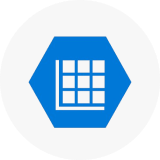What is No Code?
by Spencer Nguyen • January 19, 2021

Today’s businesses need ways to create software solutions quickly and inexpensively. No-code platforms make it possible for anyone to build a small application that can streamline a business process, add value to data, and automate tasks. In the following article, you will learn more about no-code and why more companies plan to use it.
Did you know you can generate a full-featured, documented, and secure REST API in minutes using DreamFactory? Sign up for our free 14 day hosted trial to learn how! Our guided tour will show you how to create an API using an example MySQL database provided to you as part of the trial!
The Definition of No-Code
In its purest form, a no-code platform lets people without any programming experience build apps. Most of the no-code environments have graphical interfaces that let users drag-and-drop the features they want into their app designs. Instead of writing lines of code to perform a task, you simply select the feature from a list, add it to the sequence in your app, and get the results you need.
Ideally, anyone with the most basic computer skills can use no-code platforms to build web and mobile applications.
Differences Between No-Code and Low-Code
In reality, most no-code platforms require at least a little coding experience. Without any programming knowledge, even no-code development environments can only create extremely simple apps.
Today, the terms “no-code” and “low-code” have become interchangeable. Technically, the platforms should have one critical difference: no-code shouldn’t require any programming while low-code should let users personalize features when needed. Since all major no-code platforms come with low-code features, users will need to learn some syntax to get the results they want.
Benefits of No-Code and Low-Code
No-code and low-code platforms offer numerous benefits, especially to SMBs. When Forbes interviewed an expert panel about low-code app development, the professionals pointed out that no-code and low-code platforms can:
- Lower costs and deployment time, which makes it easier for companies of all sizes to develop products and release them to consumers.
- Improve integrations with legacy systems.
- Make it easier for developers to test ideas quickly before committing resources to building software.
- Automate business processes to improve efficiency and lower operating costs.
- Increase productivity across teams by accepting contributions from employees without backgrounds in apps development.
Lower Development Costs
Most software developers expect to get paid about $107,510 per year. A large corporation with a fleet of programmers might not mind assigning apps development to their teams. They already have armies of tech professionals, so it makes sense to have them build apps.
Few SMBs, however, can afford to hire more software developers. Adding nearly $110,000—plus benefits—to their payrolls could make it impossible for them to reach profit milestones. A no-code platform, however, makes it possible for existing employees to build apps without learning special skills. Suddenly, the business can get similar results while spending half as much money on development.
Improve Collaboration Across Teams
Software developers don’t always know what features they should include in apps. No-code platforms improve collaboration across teams so developers can get ideas from employees who spend their days working on specific jobs.
No-code platforms can also play a critical role in digital transformation strategies. When you have more ideas from people throughout your company, you can address real problems that stand between employees and their goals. Perhaps they need easier access to data. Maybe they need tools that automate cumbersome tasks. Improved collaboration through no-code platforms helps identify and eliminate barriers.
Read our post Digital Transformation: What Does It Mean for Small and Medium-Sized Businesses? to discover other technologies that can contribute to your team’s success.
Could No-Code Replace Application Developers?
Does no-code offer enough benefits that companies might decide that they don’t need to hire application developers? While the rise of no-code platforms presents numerous challenges for developers, they shouldn’t expect to lose their jobs anytime soon.
The role that developers play will likely change over the next few decades, though. When more people have access to robust no-code and low-code platforms, developers don’t have to spend as much time talking to department heads about the features they need. They also don’t have to devote as many hours to writing code that performs rather simple tasks.
When more people have access to app-building tools, though, developers have to take on a new position that helps projects avoid problems. Soon, developers might find themselves spending more time:
- Correcting architectural problems of the no-code apps submitted by those without tech backgrounds.
- Coordinating development projects between multiple departments so they can solve more issues with fewer apps.
- Contributing to development projects that need unique features that no-code platforms cannot handle.
- Choosing no-code and low-code platforms that will help departments reach their goals.
- Improving the security of apps developed by laypersons.
- Providing code that lets new applications interact with legacy systems.
Did you know you can generate a full-featured, documented, and secure REST API in minutes using DreamFactory? Sign up for our free 14 day hosted trial to learn how! Our guided tour will show you how to create an API using an example MySQL database provided to you as part of the trial!
Conclusion
DreamFactory can contribute to the success of your no-code platform and development projects by generating low-code APIs that connect to all of your data sources. Like no-code platforms, DreamFactory doesn’t require a lot of experience with development. With a little familiarity, anyone can use it. In fact, the ease of use of the DreamFactory platform is a key benefit and a core reason as to why our customers choose to use us!
Start your free trial today to see how DreamFactory can make your organization more efficient and successful. Depending on your needs, you can choose on-premises or hosted deployment. Regardless, you always get turn-key API management with strong security features and the ability to scale quickly.
TL;DR - GET AN AI SUMMARY
AI SUMMARY
READY TO BUILD YOUR API?
See how DreamFactory can automatically generate REST APIs for your database in minutes.
Try DreamFactory FreeAs a seasoned content moderator with a keen eye for detail and a passion for upholding the highest standards of quality and integrity in all of their work, Spencer Nguyen brings a professional yet empathetic approach to every task.
























